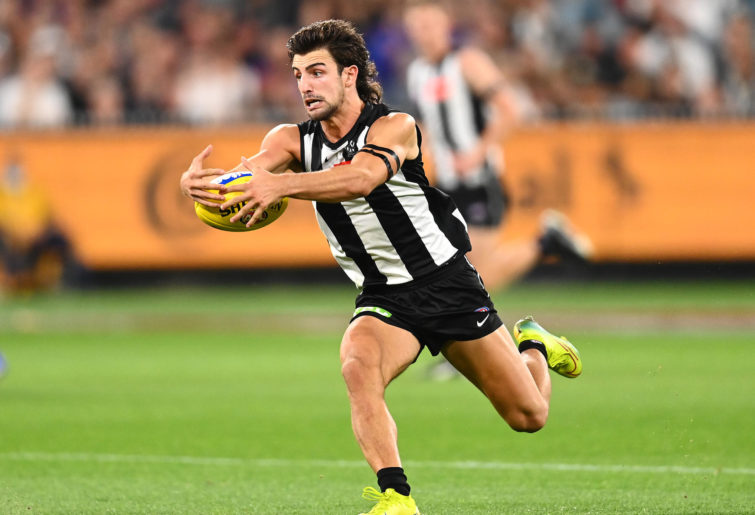'How about the smirk!' Brad Scott's amusing reaction to THAT last-second controversy
Brad Scott told journalists while the focus will be on the final play, he could cite a couple of other decisions that didn't go…
Opinion
As the 2023 draft gets underway, it is interesting to speculate on the future careers of the chosen players, particularly those considered to be the best 30.
While no doubt a number of these new players will go on to become elite members of their clubs and maybe even the AFL, a number of others will fall by the wayside and not represent their club for the length of time it would take to accumulate the games or goals to make the top 100 all-time players for their club, whether that’s because of injuries that hinder their ability to display their skills or some other reason.
Others will simply not have the talent or fitness to be regular selections in the team often enough to reach the longevity achieved by former champions, while others still will take the opportunity to advance their careers at other clubs for family, financial or other personal reasons and thus forego the opportunity in retirement to return to the club that drafted them originally as a celebrated identity.

(Photo by Quinn Rooney/Getty Images)
After the outstanding success of Nick Daicos in 2022, the 19-year-old who played in every one of Collingwood’s 25 games, including three finals, and polled 11 votes in the Brownlow Medal, great interest was taken in the family heritage of potential recruits in this year’s draft.
Collingwood were able to select Daicos last year under the father-son rule because of the significant contribution made to the game by Nick’s father, Peter, who is still the equal 13th greatest game player and the fourth greatest goal scorer in the Magpies’ 125-year history.
Western Bulldogs, Melbourne and North Melbourne were also able to take advantage of the rule by drafting sons of top 100 players Luke Darcy, Shane Woewodin and Glenn Archer respectively.
The arbitrary nature of the father-son rule that for the Victorian clubs requires the father to have played at least 100 games before his son can be claimed was highlighted again this year, but possibly the most famous case of a near miss under the rule is that of Western Bulldogs’ Bruce Reid.
Reid, whose father was also a Bulldogs player, played 86 games for the Bulldogs between 1977 and 1982, including 41 games out of a possible 44 in his last two years. Despite his good form, coach Ian ‘Bluey’ Hampshire – who had been a teammate for most of his career – sacked him, and as a result he moved to Carlton for three serviceable years and another 33 games.
If these games had been played at Footscray, the club would have been able to claim his two successful sons Ben (Collingwood) and Sam (Sydney), who are both top 100 game and premiership players for their respective clubs.
This year’s example was even closer to the mark. Ben Allan played 98 games for the Hawks before he moved to Fremantle for another 47 games. If he had played just two extra games at Hawthorn, the Hawks would have had a claim on him that any other suitor would have had to match. Despite being tipped to be drafted by West Coast, Collingwood were able to draft him with their first pick, which came in at 19.
The three father-son picks this year were Will Ashcroft (son of Brisbane’s Marcus) and Jaspa Fletcher (son of Adrian, who played over 100 games at the Brisbane Bears and Lions). Max Michalanney was able to go to Adelaide because of his father Jim’s outstanding record at Norwood.